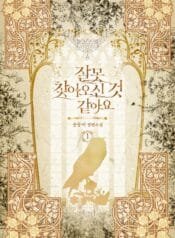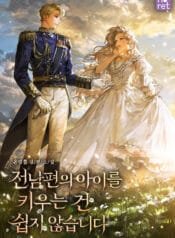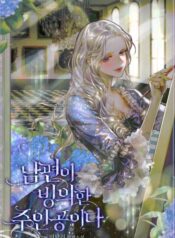Duke Mos spent the whole night meticulously examining the book of poetry he had taken from Robellia’s showcase. After reading it in its entirety, he realised that its contents were far from ordinary and immediately went to see Robellia. But Robellia simply replied that she had no memory of the notes.
This time the Duke asked permission and searched the cupboard again, finding several more books with scribbles or notes.
All the books did indeed belong to Robellia. She explained that they had been left by a tutor brought in by the Emperor when she was young, who believed that these were the kind of books women should read. So it was likely that whoever had written in the margins of the books was Robellia herself, before she lost her memory.
This time the Duke handed over a sheet of paper on which the contents had been neatly transcribed.
“We thought the roots of these two places were completely different, but when you compare them, there’s a significant overlap between buyers and sellers. Isn’t it strange for merchants of this size to sit idly by and lose their customers?”
Akan did not look at the notes the Duke had prepared, nor did he listen to the words. His focus remained fixed on the book, reading whatever other legible words he could.
The name of a once prominent slave trader was heavily underlined. It was a business that had closed down four or five years ago. Another name, marked with an X, belonged to a slave trader Akan had recently destroyed, a group notorious for trading exclusively in young women.
The information Robellia had gathered could prove invaluable to Akan in his efforts to eradicate the cruel slave trade. Or so the Duke believed. While the scribblings themselves could not serve as concrete evidence, they provided vital clues as to what to pursue and where to dig deeper.
“Viscount Ansley is tracing the sources of funding. This time we’ll bring back solid results.”
Akan continued to turn the pages of the book in silence. In one corner, old dates were written next to the names of major trading companies dealing in young boys and girls. Next to the names were what appeared to be slave prices. The values varied according to gender and size, but the numbers were generally consistent.
He kept turning the pages. The dates written in the margins kept changing. At one point, the list of trading companies shifted completely, with the main commodities now being young men deemed suitable for manual labour.
“Other details are still being checked, but…”
Akan still didn’t answer. His hands began to turn the pages more quickly. For some reason, the air he breathed felt heavier, making it harder to catch his breath.
At the very end, a section in the margin was boxed and boldly marked. It recorded the amount of compensation paid when citizens taken as prisoners of war and sold as slaves in a neighbouring country were freed and brought home.
Another page. Robellia had recalculated the sums from the previous page, using the exchange rate between the currency of the Kingdom of Prunus – where she was originally to become queen – and Imperial gold coins.
Duke Mos, watching Akan in silence, turned the book back to the earlier pages. Through the smudged writing, Akan managed to make out the names of some places.
A poor region, completely surrounded by mountains. There, in an effort to supplement their finances, they ran a unique business – a crematorium specifically designed to dispose of the bodies of slaves who had died of disease, as a measure to prevent the spread of epidemics.
Akan bit his lip hard. He went over it again and again, but there was no room for doubt. Robellia had been looking for someone among the slaves. Even assuming they were no longer alive, she had not stopped searching. It was something she had been doing for a very long time.
Akan closed the book, but he couldn’t erase the text already seared into his mind.
Standing outside Robellia’s door, Akan looked inward at his own feelings.
He had always tried to avoid Robellia, who had lost her memories, as if afraid of something. But apart from those rare moments when he couldn’t control his anger, he had never really treated her harshly. It was an uneasiness he couldn’t quite understand himself.
Akan was afraid to know, to confirm. Of discovering why he couldn’t bring himself to be cruel to her just because she had lost her memories. Now he had to face it, one way or another. With effort, Akan turned the doorknob.
“Akan…!”
Robellia, sitting on the bed arranging cards again, greeted him warmly. When she hastily moved to pick up the cards, Akan stopped her.
“Leave them. I won’t be here long.”
“All right.”
Akan picked up one of the cards scattered on the bedclothes. Even though he had steeled himself, his fingertips felt heavy.
The cards were so worn that parts of the illustrations had faded to white. This was only natural as they had been handled on a daily basis. What now appeared to be shabby scraps of paper must once have been decorated with vibrant, elaborate artwork – perhaps ten years ago.
The faint, erased images offered no definitive answers. Akan, as if hesitating between wanting to and not wanting to, slowly opened his mouth.
“Shall we… play a game of matching?”
“Really…?”
Robellia’s eyes widened in surprise at the sudden gesture of kindness. Her gaze sparkled with unbridled joy, and she smiled brightly, her lips curling in pure delight.
But the smile faded as quickly as a passing breeze. Robellia’s expression changed to one of unease as she looked around awkwardly.
“But… I can’t. A card is missing… No matter how hard I look, I can’t find it.”
With a crestfallen expression, she gave the answer Akan had been waiting for. Akan took a short breath, his breathing awkward, as if he had forgotten how to breathe properly.
“Would you… like to play a game of cards? I’m sure there are more cards.”
Robellia jumped to her feet and walked over to the cupboard. Akan followed, his steps creaking with hesitation. All the answers had been here all along.
Robellia opened the top cupboard, smiled brightly and took out a deck of cards. The playing cards, decorated with simple shapes and numbers, all looked similar. But they were unmistakable.
Akan closed his eyes, but even that wasn’t enough, so he covered them with the back of his hand.
“Akan…?”
Despite Robellia’s confused voice, it took him a long time to slowly lower his hand and open his eyes. Robellia was still standing there, staring straight at him as she held out the cards. The cards in her hand were old and worn, but the concern in her eyes remained clear and unwavering.
The whole display case, which looked like a coffin in mourning, was not just Akan’s imagination. Even without being forced by anyone, Robellia was silently atoning for her sins on her own. Long before she entered this place with dirty feet and declared that she was going to purge the grudges, she had lived a life burdened by guilt.
Akan didn’t take the cards and simply turned away. Robellia hesitated, reaching out as if to stop him, then weakly lowered her hand, her face filled with sadness, as if she had learned that she could no longer hold him as she pleased.
As her mind, pushed to its limits, finally collapsed, the reason why Robellia’s memories returned to that day remained a mystery. It would have been better if she had forgotten it all. But why did she stop on that day of all days?
Was it that for far too long, Robellia couldn’t imagine a better outcome and desperately wanted to undo that one event?
So long immersed in grief that she forgot the reason for it, yet Robellia remained blindly driven. How deeply must one cling to guilt for the remnants of it to remain, even after the memories themselves have been forgotten?
Akan took a step forward, determined to leave this place immediately. Walking on the soft, yielding ground was excruciatingly difficult.
“Come back…”
A small, fragile voice coiled around his ankles like a whisper about to fade. Akan had no choice but to turn around.
A girl from a moment in the past was standing there, bidding him farewell with a farewell filled with longing and the hope of meeting again.
This time, the departing boy couldn’t bring himself to look back.






